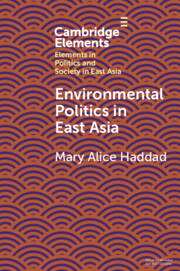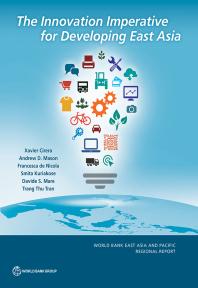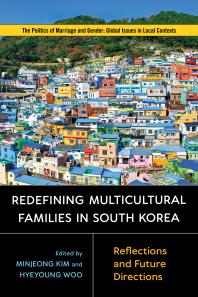
The Gordon Library has an extensive collection of books, both in print and electronic, related to East Asia. Books and e-books can provide helpful background information on your topic. Below is a sampling of those books. To find more books, type your keywords into WPI Library Search, click on Resource Type in the left column of the search results page, and then select the Books filter.
 Environmental Politics in East Asia
by
Through a focus on three environmental policy areas exhibiting different levels of success, this book shows how governments in China, Japan, South Korea, and Taiwan have been able to craft pro-environmental policy by working in collaboration with business and societal interests. This work offers both hope and caution for how we can craft pro-environmental policies in diverse political contexts.
Environmental Politics in East Asia
by
Through a focus on three environmental policy areas exhibiting different levels of success, this book shows how governments in China, Japan, South Korea, and Taiwan have been able to craft pro-environmental policy by working in collaboration with business and societal interests. This work offers both hope and caution for how we can craft pro-environmental policies in diverse political contexts.
 The Innovation Imperative for Developing East Asia
by
After a half century of significant economic success, countries in developing East Asia face an array of challenges. Slowing productivity growth, increasing fragility of the global trading system, and rapid changes in technology are threatening the region's engine of growth: export-oriented labor-intensive manufacturing. Longer-term demographic and climate change, and the current COVID-19 pandemic, are increasing economic vulnerability. Against this background, this work examines the role of innovation in fostering future economic progress in developing East Asia. The report suggests policy and institutional reforms for innovation-led growth in the region.
The Innovation Imperative for Developing East Asia
by
After a half century of significant economic success, countries in developing East Asia face an array of challenges. Slowing productivity growth, increasing fragility of the global trading system, and rapid changes in technology are threatening the region's engine of growth: export-oriented labor-intensive manufacturing. Longer-term demographic and climate change, and the current COVID-19 pandemic, are increasing economic vulnerability. Against this background, this work examines the role of innovation in fostering future economic progress in developing East Asia. The report suggests policy and institutional reforms for innovation-led growth in the region.
 Redefining Multicultural Families in South Korea
by
Redefining Multicultural Families in South Korea provides an in-depth look at the lives of families in Korea that include immigrants. Ten original chapters in this volume, written by scholars in multiple social science disciplines and covering different methodological approaches, aim to reinvigorate contemporary discussions about these multicultural families. Specially, the volume expands the scope of "multicultural families" by examining the diverse configurations of families with immigrants who crossed the Korean border during and after the 1990s, such as the families of undocumented migrant workers, divorced marriage immigrants, and the families of Korean women with Muslim immigrant husbands. Second, instead of looking at immigrants as newcomers, the volume takes a discursive turn, viewing them as settlers or first-generation immigrants in Korea whose post-migration lives have evolved and whose membership in Korean society has matured, by examining immigrants' identities, need for political representation, their fights through the court system, and the aspirations of second-generation immigrants.
Redefining Multicultural Families in South Korea
by
Redefining Multicultural Families in South Korea provides an in-depth look at the lives of families in Korea that include immigrants. Ten original chapters in this volume, written by scholars in multiple social science disciplines and covering different methodological approaches, aim to reinvigorate contemporary discussions about these multicultural families. Specially, the volume expands the scope of "multicultural families" by examining the diverse configurations of families with immigrants who crossed the Korean border during and after the 1990s, such as the families of undocumented migrant workers, divorced marriage immigrants, and the families of Korean women with Muslim immigrant husbands. Second, instead of looking at immigrants as newcomers, the volume takes a discursive turn, viewing them as settlers or first-generation immigrants in Korea whose post-migration lives have evolved and whose membership in Korean society has matured, by examining immigrants' identities, need for political representation, their fights through the court system, and the aspirations of second-generation immigrants.